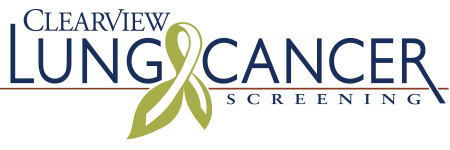Your Resources

Are you a smoker or a former smoker?
Take the Lung Cancer Health Risk Assessment.
Lung Cancer Health Risk Assessment
For referring physicians:
Referring Physicians online form PDF form to fax
- Complete and submit the
Lung Cancer Health Risk Assessment and you will be contacted to discuss your results and schedule a scan if appropriate. If you are having symptoms of lung cancer such as shortness of breath or cough, please contact your primary care physician.
Lung cancer kills more men and women than any other type of cancer. Screening can detect cancer before symptoms develop and the disease spreads. A lung cancer screen is a painless low dose CT scan which scans the body and uses low doses of radiation to take pictures of the lungs. The scan only takes 5 minutes and is recommended for people who are at high risk for lung cancer.
Those at the highest risk for lung cancer are ages 50-80 who are current or former smokers with a 20 or more pack year history.
pack year history = number of packs per day X the number of years smoked
Why Should I Get Screened?
Lung cancer kills more people than breast, cervix, colon, and prostate cancers combined. More than 85% of lung cancer patients are diagnosed in the late stages, because lung cancer does not have early warning signs or symptoms. According to the American Lung Association, when lung cancer is diagnosed at a later stage and has spread to other organs, the five year survival rate is 4%. Using a lung screen to detect lung cancer in its early stages has shown to increase survival rates in lung cancer patients by 20%. The CT scan can detect small nodules on your lungs before they have grown and spread to other parts of the body. These small nodules can then be surgically removed or treated which vastly increases the 5 year survival rate.
The lung screening CT scan uses a lower dose of radiation than the standard CT scan. This level of exposure is similar to a mammogram, which is the standard screening method for breast cancer detection.
What are the risks of lung screening?
While the radiation exposure of a low dose CT scan is minimal, it is still considered a risk. The amount of radiation for the lung screening is similar to the amount given for a mammogram which is considered the gold standard for breast cancer detection. Scans may also reveal nodules that are not cancerous, so the anxiety associated with false positives needs to be taken into consideration when making your decision.
FAQs
Do I need a referral?
All Medicare patients must have a shared decision-making visit prior to an Initial Lung Screening. If you qualify for screening and do not have a primary care provider, you can be seen in our office for your shared decision-making visit prior to your scan. All other patients do not need a referral, but your healthcare provider can discuss your risks for lung cancer and help schedule you an appointment if you prefer.
How long will the screen take?
The CT scan takes less than 5 minutes, but please allow for time to fill out any necessary paperwork required at the imaging center.
Will insurance pay for the lung screening?
Your insurance company may or may not cover the cost of a CT scan for the detection of early stage lung cancer. If you and your doctor determine that you meet the recommended eligibility criteria, then it is likely that your insurance coverage will cover the scan. For questions regarding coverage, you should contact your insurance company prior to your scan. If your insurance company does not pay for the lung screening, then you may pay cash at most imaging centers. The average cost of a low dose CT scan ranges from $200-$400.
How often should I get screened?
The American Cancer Society recommends yearly screening for high risk patients until they reach 80 years of age.
How long does it take to get back my results?
Most imaging centers will have the results between 5-7 business days.

